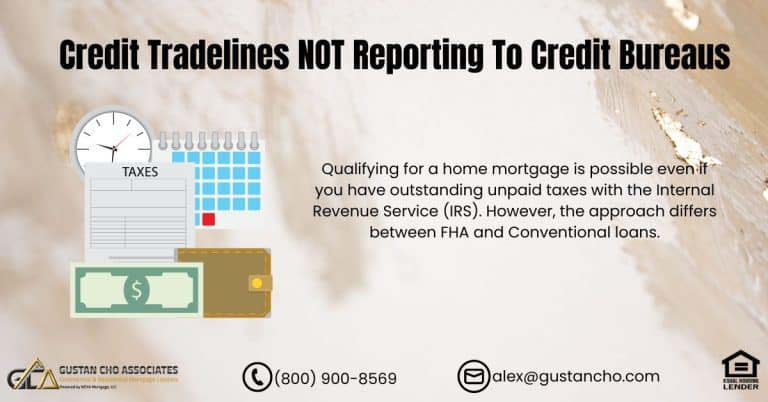This guide covers how to increase credit scores before applying for mortgage. Consumer credit report and credit scores are probably the most important factor that lenders and creditors take into account when applying for credit. Creditors of the mortgage loan, automobile loan, business loan, credit cards, or other types of credit will pull and thoroughly review credit scores and credit payment history as part of their credit approval process.
Poor payment history can have devastating effects and hinder chances of obtaining credit. A low credit score means a loan denial or high-interest rates.
One late payment can plunge credit scores by more than 50 points. No credit is equivalent to bad credit. Bad credit can also mean a job denial or a job promotion opportunity. Bad credit can mean higher insurance premiums. Credit errors on a credit report mean lower credit scores which can cost thousands. I can hinder chances of getting a mortgage loan or other loans.
Tips on How To Increase Credit Scores Before Applying For Mortgage
In the following paragraphs, we will be discussing ways of maximizing your credit scores via some simple tasks. Every consumer should sign up for a credit monitoring service by Equifax, Experian, or TransUnion. For a small monthly fee, consumers get an alert by the credit reporting agencies if there are any changes in the credit report or credit scores. Remember that the impact of these actions on your credit score may vary based on your credit history.
Monitoring your credit score regularly and consulting a financial advisor or mortgage expert for personalized guidance on improving your credit and preparing for a mortgage application is essential.
They are maximizing credit scores before applying for a mortgage loan. A higher credit score helps borrowers qualify for terms and lower mortgage rates. In the following paragraphs, we will cover tips to help mortgage loan applicants improve their credit score before applying for a mortgage.
Raise your score before you rate shop
Target quick wins—lower utilization, correct errors, and add positive tradelines
Monitor Your Credit Report For Accuracy
Check the three credit reports through AnnualCreditReport.com. Review your credit reports carefully to identify errors, inaccuracies, or fraudulent accounts. Dispute any discrepancies with the credit bureaus. Pay Bills on Time every month.
Discover expert strategies to boost your credit score before applying for a mortgage. Learn how to optimize your credit history, manage debt, and improve your financial standing for better mortgage terms.
Make timely monthly payments for all your debts, such as credit cards, installment loans, and utilities. Late payments impact credit scores and can be grounds for mortgage denial. Reduce Credit Card Balances: Pay down credit card balances, especially if they are close to or at their credit limits. High credit card utilization hurts your credit score.
Avoid Opening New Credit Accounts
Avoid opening new credit cards or loans in the months leading up to your mortgage application. Each new inquiry can temporarily lower your credit score. Maintaining different credit types, such as credit cards, installment loans, auto loans, and retail accounts, can positively affect your credit score. Don’t Close Old Accounts.
Keeping old credit accounts open can help improve your credit history’s length, which is a factor in your credit score. Pay off collection accounts by doing a pay-for-delete agreement with creditors to remove the negative item from your credit report.
Be Patient in improving your credit before applying for a mortgage. Aim for at least six months to a year of credit improvement efforts. You do not need to hire a credit repair service. If you need assistance managing your debts and improving your credit, contact us at Gustan Co Associates. Consult with a Mortgage Professional: Speak with a mortgage lender or broker early in the process to understand the specific credit score requirements for the type of mortgage you seek.
Credit Card Balances
Common sense says dictates that paying off debts and having a zero credit balance on a credit card should maximize credit scores. However, that is not the case. Little debt on credit balances will definitely maximize credit scores.
Applying for a mortgage is a significant financial step, and having a high credit score can make a substantial difference in the terms and interest rates you receive.
This comprehensive guide will walk you through the essential steps to increase your credit scores before applying for a mortgage. By following these strategies, you can improve your creditworthiness and secure better mortgage options. However, a zero balance on a credit card will not maximize credit scores. It will not hurt or drop credit scores. It will not maximize credit scores due to the credit utilization ratio.
Credit Utilization Ratio
There is a factor known as your credit utilization ratio. The credit utilization ratio is the percent of credit balance limit on a credit line. A zero balance will not factor into the credit utilization ratio factor. This particular ratio is the percent of credit limit that is being actively used and counts 30% of overall credit score.
Below is how the credit utilization ratio is calculated: Take available credit balance and divide it by current credit card balance. For example, if the credit card limit is $1,000 and the credit card balance is $900, divide $1000 by $800 and it will yield a factor of 0.80. Then multiply the factor, 0.80 by 100 which yields 80.
A credit score is a numerical representation of your creditworthiness, ranging from 300 to 850. Lenders use this score to evaluate the likelihood of you repaying your debts. The higher your score, the more favorable the terms you can expect.
The lower the factor, the better the results on increasing credit scores. Consumers who had a credit card balance of $100 and a credit card limit is $1,000, the factor will be 10. 10 is lower than 80, thus, having the lower credit card balance will maximize credit scores. This is a great way of boosting and How To Increase Credit Scores Before Applying For Mortgage.
Increase Credit Scores Before Applying For Mortgage: Having Zero Credit Balance
Having a zero credit card balance will yield a credit factor of zero, thus, hurting the borrower’s credit score. $0 divided by $1,000 will yield a factor of zero. Always keep a $10 credit balance on credit card.
Credit scores play a crucial role in determining your mortgage eligibility, interest rates, and loan terms. A higher credit score can lead to lower interest rates, which can save you thousands of dollars over the life of your loan.
Remember that the impact of these actions on your credit score may vary based on your credit history. Monitoring your credit score regularly and consulting a financial advisor or mortgage expert for personalized guidance on improving your credit and preparing for a mortgage application is essential.
Impacts of High Credit Card Balances
Lenders, in general, consider those who have high credit card balances a high-risk borrower. They normally want to see consumers have a credit card balance of 30% or less.
Check errors on credit reports: Begin by obtaining a free copy of your credit report from each of the three major credit bureaus: Equifax, Experian, and TransUnion. Carefully review each report for any inaccuracies or errors. Dispute any incorrect information to ensure your credit report is accurate.
Identify Areas for Improvement
Look for patterns in your credit history that may be negatively impacting your score. This could include late payments, high credit utilization, or a short credit history.
Set up automatic payments for all your bills to ensure you never miss a payment. Late payments can significantly lower your credit score, so consistency is key.
Having a high credit card balance will definitely lower credit scores. Always keep credit card balances below 10% of the credit limit. If possible, keep credit card balances as low as possible but greater than zero.
Increase Credit Scores Before Applying For Mortgage: Negative Impact of Late Payments
A recent late credit card monthly payment can and will drop credit scores dramatically. One late payment can drop your scores by 30 points or more. In the event consumer had a recent late payment, contact the creditor. See if they can give a one time break and have the late payment not reported to the credit reporting agencies.
Consumers who had a good payment history with their creditor and made payments timely, the creditor will probably give them a one time reprieve.
There are a chance creditors will delete the late payment from the credit reporting agencies. Consumers who had a history of late payments, the creditor will most likely not do it. If you have a family member with excellent credit, ask to be added as an authorized user on one of their credit cards. This can help boost your score, provided they maintain good credit habits.
Boost points fast with smart paydowns
We’ll map which cards to pay—and by how much—for maximum FICO impact
Never Close Out Active Revolving Account Is Another Way To Maximize Your Credit Scores
Many consumers have a tendency to closing out active credit card accounts to avoid the urge of using them and not to be in debt. This is not a good way on How To Increase Credit Scores Before Applying For Mortgage.
In closing an active credit account will shorten credit payment history. This holds especially true if they had the credit card for a long time.
The more credit accounts that a consumer have that has been established, the more they maximize credit scores. Even if the consumer has a zero balance and has to pay an annual fee, please keep those credit cards active and do not close them out. However, this practice is detrimental to credit scores. 15% of overall credit scores are determined by the longevity of past credit history.
Credit Inquiries
Credit inquiries can hurt credit scores. Try to avoid applying for credit cards or other credit all at the same time. Consumers who have a dozen inquiries in a month, this will devastate their credit scores.
Consider a secured credit card if you’re new to credit or rebuilding your score. These cards require a security deposit and can help establish a positive payment history.
This will alert the creditors that something is wrong and shows that they are desperate. These hard credit inquiries will stay on the credit report for 2 years and will hurt chances of future credit approvals. Try to apply for no more than 4 new credit and keep the inquires as low as possible. The ideal credit accounts a consumer should have is 5 to 10 and a 3 plus year credit history is ideal.
Steps on How to Improve Credit Scores Before Applying For A Mortgage
This article outlines the fastest ways to increase your credit score before applying for a mortgage. This can significantly reduce loan payments, lower interest rates, increase the chances of approval, and reduce the time taken for the loan process.
Be cautious about applying for multiple new accounts in a short period, as this can result in hard inquiries and temporarily lower your score.
The length of your credit history accounts for 15% of your FICO score. Keep your oldest credit accounts open and active to maintain a longer credit history. Occasionally use your older credit cards to keep them active and avoid closure due to inactivity. Some financial institutions offer credit-builder loans designed to help improve your credit score by reporting your on-time payments to the credit bureaus.
How to Improve Credit Scores Before Applying For A Mortgage
This article outlines the process of strategically improving your credit score before applying for a mortgage to maximize your chances of approval. Understanding the facets of the credit system allows the borrower to gain flexible home loan options and the most competitive interest rates available.
Credit increases hinge on several factors, and judicious planning can save borrowers from multiple headaches later on. Increasing a score where the borrower is out of the risk zone and safely within the green zone can take minutes of planning.
Most lenders require a minimum credit score of 620 to qualify for a conventional mortgage. However, seeking a score of ‘740’ or higher helps to score the best interest rates. These factors contribute to the score: payment history (35%), amounts owed (30%), length of credit history (15%), new credit (10%), and credit mix (10%). Working on these factors before applying for a mortgage can help increase the credit score and improve the lending terms significantly to avoid unpleasant surprises.
Checking and Grasping Your Credit Score to Get Ready for the Mortgage
Embarking on ways to boost your credit score for a mortgage should start with an assessment of your position. AnnualCreditReport.com is the only site authorized by the government to provide free reports on your credit history from Equifax, Experian, and TransUnion. Credit score estimates can also be accessed through no-cost platforms like Credit Karma or a banking application, with the caveat that these estimates are based on the VantageScore algorithm and not the mortgage-specific FICO score used by lenders.
How to Improve Credit Scores Before Applying for a Mortgage
A report audit should always look for inaccuracies, such as out-of-date information or outdated item balances, that could lower the overall score. Understanding what goes into a score helps determine what to fix first. For mortgage purposes, concentrate on FICO Score 8 or the 2-3-4 model since those are the ones most lenders use. Observing and checking your credit score before applying for a mortgage shows that you can plan well and modify your plans to achieve your goals.
How to Access, View, and Print Your Free Credit Reports Safely
Pulling your credit reports for yourself is very easy. Go to Annual Credit Report and verify identity with basic personal information. Download the reports from the three bureaus, since each pulls its own reports to fix its errors. Paid services should only be used if you are looking for credit monitoring reports, because the information is useful when trying to improve your credit. In the first review, pay special attention to late and overall balances. These factors are what lenders are actually looking for to see if you can be qualified for a mortgage.
Proven Strategies to Pay Down Debt and Lower Credit Utilization to Get Better Mortgage Rates
Before applying for a mortgage, one of the fastest ways to increase credit scores is and credit scores is to tackle credit utilization, which is the extent to which you are using your available credit. Keeping this ratio under 30% is ideal, especially under 10%, as high balances indicate risk to creditors.
For instance, if you have a $10,000 credit limit and a balance of $4,000, your utilization ratio is 40%, and your credit score will suffer.
You should start from the top of your list and pay off all revolving prepaid debts, such as credit cards, with the “debt avalanche” for high-interest debts and the “debt snowball” for low-interest debts. Use a personal loan to consolidate debts with lower rates. Do not remove new credit cards close to a mortgage application; you will increase the inquiries. Paying down the debt increases credit scores and improves the debt-to-income ratio, an essential type of mortgage in which the underwriter is capped at 43% DTI.
Reducing Your Credit Utilization Ratio and Calculating Credit Step by Step
Utilization is calculated by dividing balances by limits, then multiplying by 100. For example, $5,000 owed against $20,000 worth of limits is 25%. Request a credit limit increase from the issuers to instantly dilute the utilization ratio. Bills mid-cycle rather than statement close to report lower balances. These tweaks can increase the score by 20-100+ points in a month, which is very helpful while preparing to get a mortgage.
Clean up credit reports the mortgage-safe way
Fix errors and pause risky disputes to keep AUS and underwriting happy
Credit Report Disputes To Efficiently Improve Requested Scores For A Home Loan Application
Broken credit reports are very common, and people do not want to lose points due to them. When learning how to improve a credit score before a mortgage, these files should be disputed. 25% of reports that collect negative data are factually incorrect, like having the wrong name and address. The Fair Credit Reporting Act (FCRA) provides for the ability to dispute items without any fee.
Files disputing errors on credit reports can be a drawn-out process. This could take months on the quicker end, even on the portion of the creditor disputing the errors.
This involves full proof of payments along with the appropriate filing of documents. Within 30 days, the dispute can be under investigation, and any valid errors in the answer must be removed. The easiest fixes are filing for late payments and removing the verified identity clause through FTC affidavits. Your credit score can even drastically improve within a day of a mortgage being filed for. This leverage enables mortgage preapproval with ease.
Common Credit Report Mistakes and Bases For Disputing Them
Common mistakes involve main disputes because there are accounts with the same payments and server, and they claim they were unpaid and late payments. Evidence with explanation should always be backed up, such as bank statements, photo IDs, drivers’ licenses, other accounts, and disputes made. Ensure you always have and can access the confirmation number and follow up on the case. Breakdowns like these can be purchased in bulk and grouped to access the CFPB, which should be done proactively.
Implementing Strong Policies and Building a Reasonable Payment History
Payment history accounts for about 85% of your credit score. Important payments must always be made to avoid falling behind on mortgage payments.
Improving a credit score can take time, depending on the extent of the changes needed. Generally, you can see improvements within a few months of consistent effort, but significant changes may take six months to a year.
Most people do not realize that even a 30-day late payment can severely lower your score, tend to be within 110 points, linger for seven years, and magically reappear. Make sure always to pay your bills on time, set up autopay for accounts that are easy to remember, and set up your calendar for anything else you can use reminders for.
Tools and Apps for Automating Payments
If you’ve missed payments, bring accounts current immediately. Lenders value recent good behavior. Goodwill letters to creditors requesting mark removals from their records sometimes work, especially for one-off issues.
Consistent payments rebuild trust and positively affect automated decision-making systems used for mortgages. Leverage apps like Mint or YNAB for tracking bills and budgeting, allowing you to set bank-level payment alerts.
Text notifications from creditors on various schedules also work. Developing this set of habits for mortgages demonstrates responsible use of credit, possibly leading to larger loans or more favorable terms.
Avoiding New Credit Inquiries and Hard Pulls While Preparing for a Mortgage
New credit inquiries can also work against you, each costing you 5-10 points, so strategy becomes crucial while trying to increase your score for home loans.
Hard pulls from applications stay on your report for two years and can signal to lenders that you have recently borrowed, so slow down the pace. Limit applications to essentials spaced a few months apart.
Soft inquiries like self-checks of your credit do not affect it. Check lenders and do your research before applying to avoid surprises. Avoid applying for other credit facilities to preserve score gains for maximum mortgage readiness during your credit buildup.
The Effect of Rate Shopping on Mortgage Credit Inquiries
Regarding home loans, any inquiries within the allotted time frame (which varies by scoring model) are treated as one during the 14 to 45-day timeline. In this case, going for and completing the task is more important than just completing it. You have to do your research on at least three lenders, which is going to take time. This is done to protect your score and, at the same time, fetch the best deals.
Credit History and Credit Mix for Mortgage Strength Diversification and Long-Term Value
Although an average account age is more difficult to control, its aging influence on scores strengthens over time. Drease old accounts, inactive accounts, and accounts of any age to improve your credit score and account history. Closing accounts on old accounts shortens your history, lengthens your spikes, and increases your utilization.
In this case, an account with loans (installments) and credit cards (revolving) shows more variety than you need, so don’t open more accounts just for the sake of it.
Suppose your credit history is thin (under 3-5 years). In that case, you can contact an approving family member with long-standing cards and a positive credit history to help authorize you. This removes the risk associated with having to use their cards. You can rest assured that for mortgage applicants, having a more balanced and aged profile with positive credit history is going to ease the anxiety of lenders.
Safely Becoming an Authorized User to Add Credit History
Select accounts with no account utilization and no negative balances. In this case, you request the issuer to add you, then wait and monitor for any wrong reporting. This sort of enhancement is passive and can help you enhance your credit history by years if you are a first-time mortgage buyer.
Seeking Professional Help: Credit Counseling and Repair Services for Mortgage Seekers
- Should DIY approaches stagnate, AFCC.org’s nonprofit credit counselors and members will assist with free debt management plans and negotiate on the consumers’ behalf for lower rates with creditors.
- Professional help increases the chances of success and decreases the time required to achieve the intended results.
- As a reminder, avoid for-profit credit repair companies.
- They won’t be able to remove the real and accurate negatives and have exorbitantly high prices for their “services.”
- Approved by the Department of Housing and Urban Development, counselors help with credit homework before mortgages.
- They help with serious issues after bankruptcies after a 2-4 year waiting period.
- The costs and benefits must be compared; sustainable benefits come from legitimate help.
Selecting Trustworthy Credit Counseling Agencies
Check their recognition first, see if the NFCC and/or FCRA have a merger. Read the suggestions and ask for the fee system before the work commences. Personalized plans and strategic plans surround mortgages.
Planning Improvement Period
- The waiting period is also known as the accomplishment period.
- Takes the credit score boost time to a month-long loan.
- Changes take about 1-3 months to complete, and with 6-12 months of prep, the results will be optimal.
- Preparing 6 months before the home loan application date ensures the home search is aligned with the credit score results.
- The score record is the perfect time to dispute and assess the velocity.
- Creditors, just like with many other partial loans, allow for accompaniments.
- Each component adds collateral for the agreed amount due.
Protect your score while you shop homes
Limit inquiries, keep old accounts open, and avoid new debt traps
Monthly Boosts of Credit Scores Related to Mortgages
- In month 1: Dispute errors and pay down 20% of your balance within the month.
- In month 3: streak of on-time payments and apply for credit limit increases.
- In month 6: Assess the user mix and add an authorized user if necessary.
- This increases the chances of getting approved within the specified time.
Increasing The Credit Scores For Applying For a Mortgage: FAQs
How Many Months Can I Expect My Credit Score to Improve Significantly For a Mortgage?
- 1-3 months is the range in which action will shelter debt or pay down disputed errors.
- However, if you’re looking for a score boost of 50 or more points, that may take 6-12 months of dedicated work.
- Align your efforts with your established timeline for buying a house for the best results.
Can I Boost My Credit Score Within 30 Days Before Applying For a Mortgage?
- Absolutely, quick wins on credit utilization, inaccuracy disputes, and on-time payments can range from 20 to 50 points in a month.
- Just ensure you have a credit score that is optimally positioned for the effort-to-results ratio.
What Is The Lowest Credit Score a Borrower Can Have and Still Qualify For a Mortgage?
- Most traditional home loans will turn you down if you have a credit score under 620.
- However, FHA loans will take you at 580 with 3.5% down.
- If you don’t want to pay for private mortgage insurance, aim to score above 740 for the best rates.
Discharged Accounts and Their Impact on Credit Score for a Home Loan: Does ‘Collections’ Get nullified for ‘Paid Off’, and Does it Increase Credit Score?
- Paying off collections stops further damage and may help change the lender’s perspective.
- However, the negative impact lasts 7 years.
- Where it makes sense, negotiating a ‘pay for delete’ is a good idea.
Does Closing Old Credit Card Accounts Impact My Credit Score When Applying For a Mortgage? If I Do, Will I Get More Points?
- No, accounts that are old and being closed have a negative impact, so they do not have an impact.
- Utilization is likely to go up, which will impact your score in a negative way.
- It is advisable to leave them open, even if the balance is 0.
What is The Impact of The Debt-to-Income Ratio on Credit Score For Mortgage Approval?
- DTI is an assessment of the ability to pay, spending ability, and recording on a mortgage, which is a single entity.
- It is still separate from your credit score.
- There is a definite correlation.
- Paying off debt and gaining a better score will help you lower your DTI.
This BLOG On Increase Credit Scores Before Applying For Mortgage Was UPDATED on October 18, 2025.
Related> Maximize And Maintain Your Credit Scores
Get expert guidance from a mortgage credit pro
One-on-one review and a clear path from today’s score to approval









